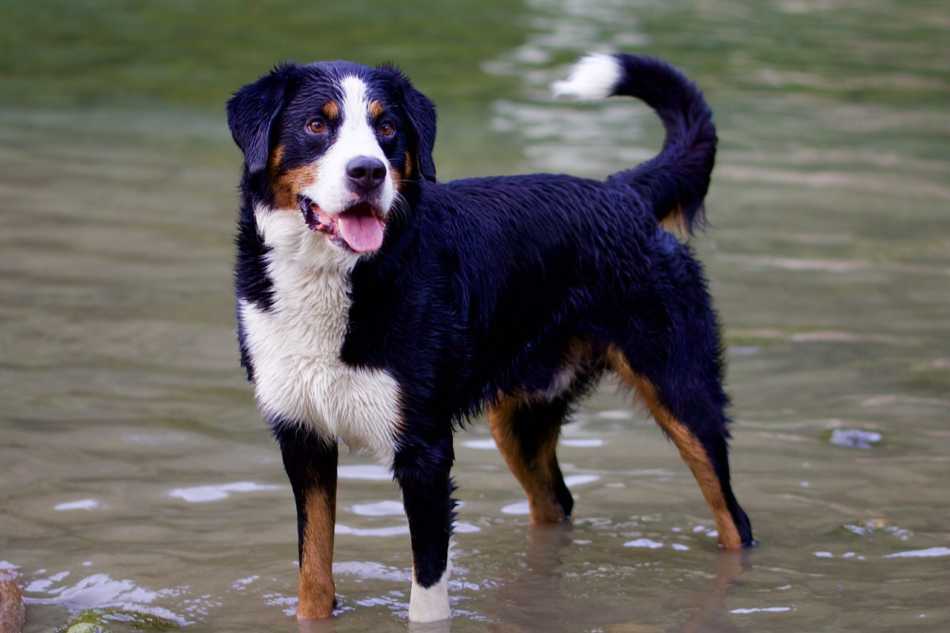 The smell can be unbearable. If your dog stinks after going outside, it’s frustrating and gross. When your pooch gets into a mess, it’s pretty obvious they need a bath, but what about stinky dogs who didn’t step in something? There’s plenty you can do for a stinky pup, but figuring out why they smell so much after spending time outside isn’t always obvious. I decided to find out what causes this eye-watering phenomenon, and I learned more about doggy biology than I expected.
The smell can be unbearable. If your dog stinks after going outside, it’s frustrating and gross. When your pooch gets into a mess, it’s pretty obvious they need a bath, but what about stinky dogs who didn’t step in something? There’s plenty you can do for a stinky pup, but figuring out why they smell so much after spending time outside isn’t always obvious. I decided to find out what causes this eye-watering phenomenon, and I learned more about doggy biology than I expected.
Why do dogs stink after being outside? Dogs smell after being outside because of their fur. There’s a considerable amount of surface area in a dog’s hair, and they absorb everything that’s blowing around outdoors. From pollution to nearby wild animals and trash, odors get trapped in your pet’s coat. Naturally, when they come inside, it’s more noticeable because they’re in an enclosed space with nowhere for the smell to go, so it hangs around them.
Reasons Why Dogs May Stink After Going Outside:
- Ambient Odors- The smells from outdoors get into your dog’s fur when they run around outside.
- Geosmin- The smell of rotting bacteria that gives dirt it’s ‘dirty’ scent is something most humans are susceptible to. Your dog probably smells like Geosmin after going out even if the problem is something else. Even without a dog’s superpowered nose, humans can detect as little as five ppt (parts per trillion).
- Sweat- Dogs sweat through their paw pads. It’s often warmer, and they’re moving around, hence more sweat.
- Skunks & Stinkbugs- Once in a while, your dog gets sprayed or passes near a skunk or stinkbug. They tracked the smell inside on their fur even when it wasn’t a direct hit.
- Garbage- Trash smells, and most places have some litter or trash cans with all the odor that accompanies them. This can get into a canine’s coat and reek.
- Pollution- Unless you live on a pristine mountaintop or untouched island, your dog is picking up air pollution in their fur.
- Gas & Doggy Breath- Occasionally, the smell isn’t caused by outdoor activities. Instead, the pup in question created the smell once they were already inside.
- Infections & Skin Conditions- Whether from allergies, bacteria, or a wound, smells can be more noticeable when you come in from going outside where the air is fresher.
- Water- The ‘wet dog smell’ may be to blame if your dog was in the rain, a dewy field, or even merely somewhere that has moist air.
- Bathtime- If it’s been a while since your dog had a bath, you may just be noticing it more indoors. Similarly, some canines love to roll around in smelly messes. Either way, they need a shower.
- Anal Sacs- A dog’s natural musk comes from glands in their butt. If they got excited and marked something, you could be smelling their signature scent.
Handling Odors When your Dog Comes in Stinking
The bad news is that it’s normal for your dog to stink after being outdoors. Even if they only spent a few minutes outside the house, their fur is a huge mass of surface area. It traps air and odor inside. As a result, you can smell everything they encountered once they get in a smaller space.
You could plug your nose and open a window, but it’s not the best solution. There’s nothing wrong with creating a little bit of airflow to help clear out the lingering miasma of dog-was-outside, but that should be the first step, not the only one. Similarly, there’s no harm in lighting a candle, some incense, or even giving the room a quick spritz with some deodorizer.
Give Your Dog a Bath
While I understand it’s not always practical to bathe your stinky dog after every outing, especially if you notice the smell after every walk and you head out two or more times a day, a bath will help. Some pet owners rarely bathe their dogs, content with a monthly scrub. If you’re one of ‘those’ pet parents, it’s time to step up your dog-bath game. Bathe your canine at least once or twice a week to help keep them healthy, and odor-free.
I highly suggest you invest in an outstanding dog bath. The top of the line Master Equipment PolyPro Lift Grooming Tub is one of the best I’ve ever used. Getting my dog off the ground and into a freestanding tub that has higher sides than a typical human bathtub helps you reach them easily and makes the whole job a breeze. To check out prices and availability, click here.
A good scrub should resolve the odor issue. However, it’s not going to keep their fur from picking up ambient scents. Unfortunately, you can’t stop that unless you get a hairless dog. The lack of hair means they have less surface area to hold smells.
Trim Your Dogs’ Fur to Reduce Stench
Since the outdoor stink is carried in the dog’s coat, then the issue is how much fur your dog has. You probably aren’t looking to replace your beloved pet. Still, consider a short-haired or hairless dog in the future. Meanwhile, a great way to reduce the stink bearing surface area of fur is to make sure they get regular trims.
Hiring a professional groomer to make sure your pup’s coat stays shorter is a great solution. However, it’s not within everyone’s budget to take a pet to the groomer every couple of weeks. Learning to DIY your dog trimming is the perfect way to cut costs and spend more time with your canine companion.
It’s not a great idea to use your human hair clippers on your dog. They aren’t designed for fur removal. Instead, get yourself an excellent set of HATTEKER Cordless Waterproof Dog Grooming Clippers. The kit comes with a comb, and all the accessories you’ll need, plus a small cleaning brush for the clippers. Moreover, it’s designed for low vibration and less noise so that it won’t freak out your favorite Fido as easily as noisy people-trimmers. You can find out more by clicking here.
What if the Smell Goes Away After A Few Minutes
Typically, dog owners notice the outdoor dog smell seems to disappear after a few minutes. Unfortunately, that’s not a solution. Moreover, it may be an illusion of sorts. Human noses acclimate to bad smells reasonably quickly. We produce mucus to help block it out and start to simply ignore it instead of processing it constantly.
The stink isn’t gone at all. Instead, you’ve ‘forgotten’ about it. This is probably a defensive mechanism or a social evolution that allows you to better cope with being in unpleasant places. Once your nose has warned you of the problem, it’s job is done. You no longer need to process that warning, so you don’t.
When to Worry About Outdoor Smells on Your Dog
Usually, the outdoor stink on your dog is annoying, but not a problem. However, there are times when the smell on your pooch is unbearable or even dangerous. For example, if your dog is among the many who enjoy a good carcass roll, and they come back covered in the smell of dead things they rolled through, you need to address it right away.
Spot’s immune system may be better equipped to handle rotting meat than yours, but it’s still not good for them. Furthermore, you should never let your dog contaminate your house with rotten animal bits. Even when it’s too small to see, germs and bacteria will still get on everything they touch. Your dog, your family, visitors, and yes, you can all get very ill from that sort of contaminant around the house.
Skunk Spray Stench Solutions
Sometimes the stink from being outdoors is from a wildlife encounter. Skunk spray is another one of those times when you should never leave Rover to stew in his mistakes. Not only is it awful for both of you to smell, but the skunk-spray will also get all over the house. While it’s not per se toxic like dead animal contamination, it’s severely unpleasant.
Skunk smell can stay on your dog for as long as a full year. It’s vital to get them bathed as quickly and thoroughly as possible. Always wear gloves when scrubbing a skunked dog. A paste of hydrogen peroxide, baking soda, and dish soap will help get rid of that nasty stench.
You can also try using their regular pet shampoo. After you wash off what you can soak their entire coat in tomato juice, leave the tomato on your dog for ten to twenty minutes before rinsing. Feel free to repeat as necessary, and keep in mind that tomato juice may stain a white dog orange for a while, but it won’t hurt them.
The acid in tomato juice helps break down the skunk spray in the same way enzyme cleaners break down pet urine. Note- DO NOT use an enzyme cleaner on your dog!
Infections & Mystery Odors That Don’t Wash Off
Once you’ve bathed your stinky dog after their outdoor adventure, the smell should be gone. If it’s not, rinse and repeat. When that fails, sniff around and see if you can identify where the odor is coming from. Check for infections and other problems.
As long as your dog isn’t behaving strangely, you may want to consult a professional groomer about the issue. However, if you notice your dog chewing on one spot incessantly, they have a fever or are lethargic, you need to visit the vet right away. Skin problems, internal infections, and other issues that stink are not something to ignore.
Final Thoughts
Almost all furry dogs smell a bit after being outside. Smokers are less likely to notice because their noses are less effective. However, you can safely assume your dog will have this issue at some point. Luckily, it’s more often than not harmless.
When you suspect something is seriously wrong, or there’s a mystery smell you can’t get rid of, it’s time to ask for professional help. Never risk your pet’s health on random guesses. If you can’t bathe the smell away, you need to identify it to handle the issue.
Make sure you give your dog a few extra baths when they’re outside more often. You can get doggy perfumes, but that only covers a problem, and it’s not a real solution.
